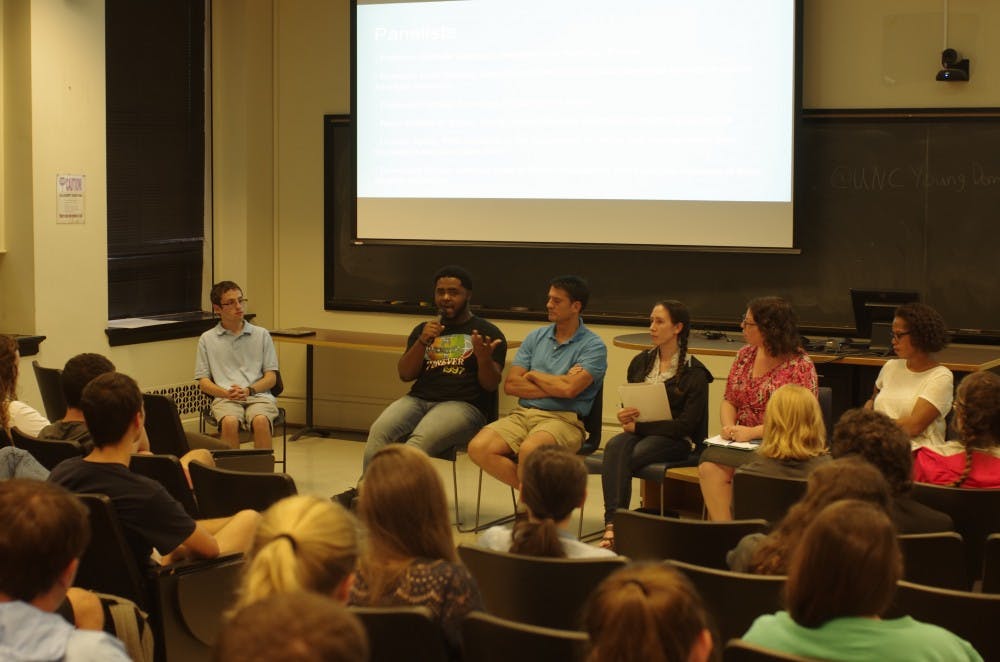When the UNC Young Democrats hosted a discussion Wednesday night on the recent tensions regarding Silent Sam, American studies professor Michelle Robinson did not mince her words.
“Silent Sam is a white person problem too,” Robinson said. “It is a problem that everyone has a stake in on this campus. It’s not simply being an ally, but taking responsibility for the kind of campus you want to be on.”
The discussion presented six panelists from the Chapel Hill community and was open to the public. Each panelist provided unique historic and current perspectives on the issues surrounding Silent Sam.
The call to action continued with Rabbi Melissa B. Simon, a senior Jewish educator at NC Hillel. She looked to those in attendance, primarily UNC students, as the most important part of enacting change.
“I think a lot of times we look back on historic moments and say, ‘Oh, if I was alive then, I would’ve done something,’” Simon said. “When we look back, it’s young people who make these changes. Don’t wonder one day what you would have done or said.”
Many have argued that the Silent Sam statue represents important history as opposed to racism. Fitzhugh Brundage, a history professor, disputed this idea, citing the intentions of those that created the statue.
“These are monuments that were intended to impinge upon the lives of as many people as possible,” Brundage said. “These were not put in a cemetery where you would go to see them when you want to see them. They put them up in places where you have to encounter them all the time. So that was a claim to a privilege of public space.”
Jacob Greenblatt, president of the Young Democrats, said the presence of so many new students on campus is what gave the meeting extra meaning to the organization.
“We want to make sure people know what’s going on and what they can do to prevent racism and white supremacy and anti-semitism on campus,” Greenblatt said. “We’re hoping to start a dialogue and broaden the horizons of people that aren’t as aware of this issue.”



